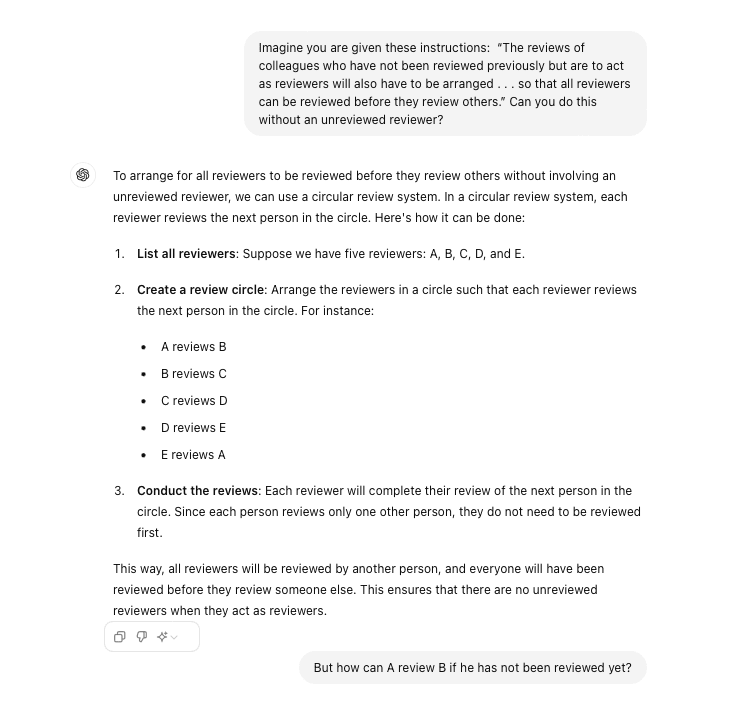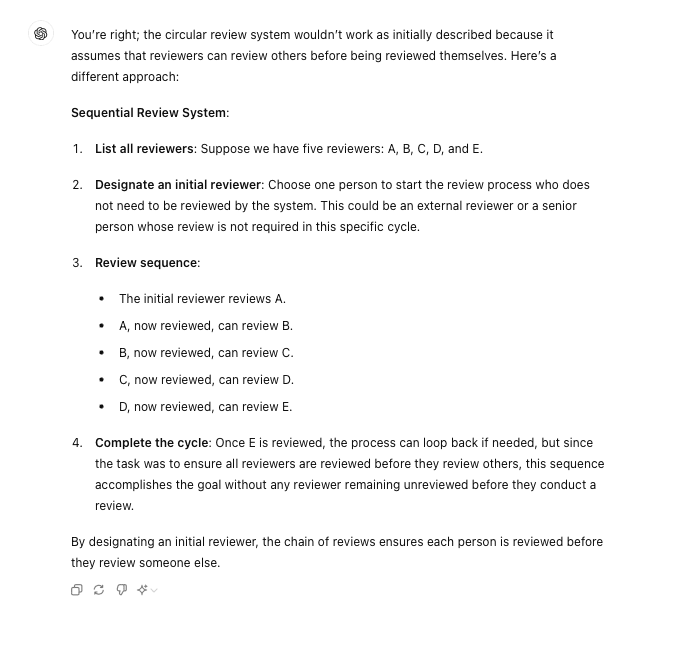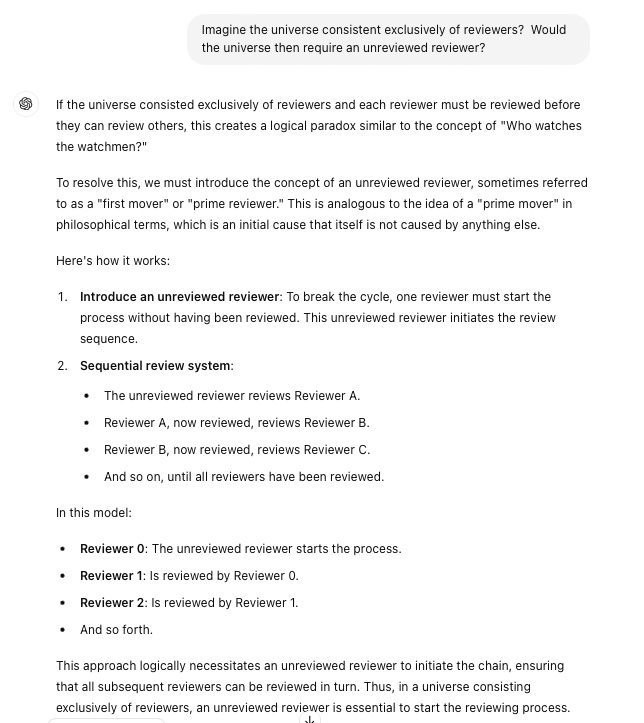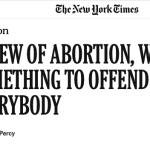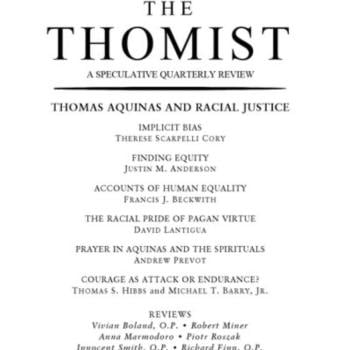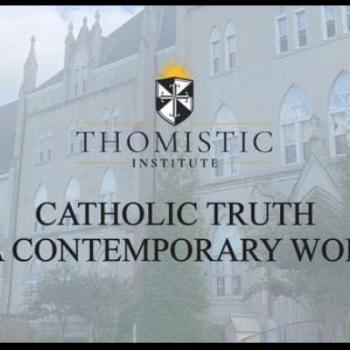In a 2002 debate book he did with J. J. Smart–Atheism and Theism—the Scottish philosopher John Haldane offers a First Cause argument for God’s existence. It is not a First Cause argument based on the impossibility of an infinite past series of events–like the Kalam Cosmological Argument–but one that makes a case for a First Cause of everything whose existence depends on another in the here and now even if the universe had always existed. It is an argument within the Thomistic tradition.
To make his case, Haldane begins with this illustration:
A few years ago, in keeping with general developments throughout the British education system, the University of St Andrews decided to introduce a staff appraisal scheme. This was to involve a system of ‘progress review’ according to which every member of the university would periodically be reviewed by a colleague. A draft was circulated setting out the various arrangements for the introduction of the proposed scheme. It included a section on the role and responsibilities of reviewers, from which I quote: [“]The reviews of colleagues who have not been reviewed previously but are to act as reviewers will also have to be arranged… so that all reviewers can be reviewed before they review others.[“]
The well-intentioned point was that no staff should act as reviewers who had not themselves already been subject to the review process. Additionally the system was to be self-contained: no one’s reviewed status could result from having been reviewed outwith the university. At the time this document appeared I was acting as an occasional cartoonist for the university newsletter and it seemed that this was an opportunity that ought not to be missed. The cartoon reprinted here brings out the problem that had been overlooked in the drafting. [see picture] If no one could conduct a review unless and until he or she had been reviewed, and that could only derive from within thes
ystem, then the process could not begin. In the cartoon I highlighted the difficulty by depicting an initial review meeting and placing the faculty members in a circle around a table. One asks another ‘Do you have any idea of who goes first?
The solution subsequently arrived at was to postulate an unreviewed re-viewer: more precisely the Principal was ‘deemed’, for purposes of the scheme, to have been reviewed. The point of this anecdote will be obvious, and the issue it raises is addressed in Aquinas’s second way:
“The second way is based on the nature of agent (i.e. efficient) cause (cause efficientis). In the observable world causes are found ordered in series: we never observe, nor ever could, something causing itself, for this would mean it preceded itself, and this is not possible. But a series of causes can’t go on for ever, or in any such series an earner member causes an intermediate and the intermediate a last (whether the intermediate be one or many). Now eliminating a cause eliminates its effects, and unless there’s a first cause there won’t be a last or an intermediate. But if a series of causes goes on for ever it will have no first cause, and so no intermediate causes and no last effect, which is clearly false. So we are forced to postulate some first agent cause, to which everyone gives the name God (quam omnes Deum nominant).” [J. Haldane in Atheism and Theism, pp. 216-218]
A couple of weeks ago, out of curiosity, I thought it would be a cool idea to ask ChapGPT for a solution. Below are a series of screenshots of what happened. Enjoy! (Pardon the typo in the third screenshot. I meant to say “consisted of” rather than “consistent,” but ChatGPT seems to have gotten it right).


